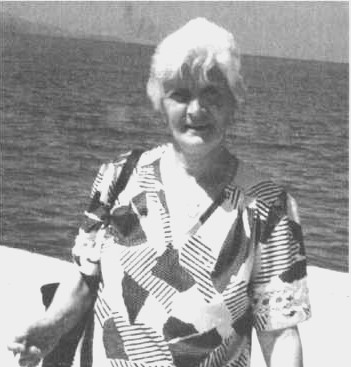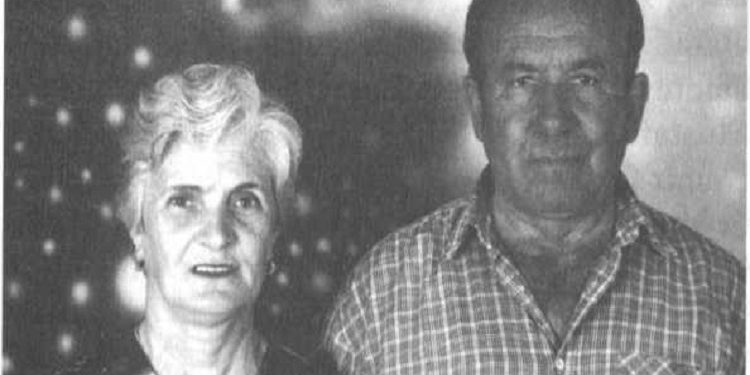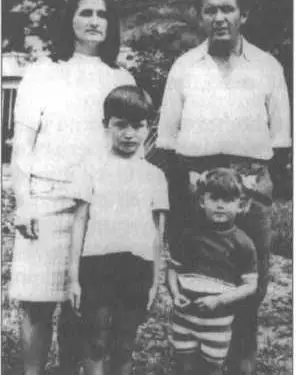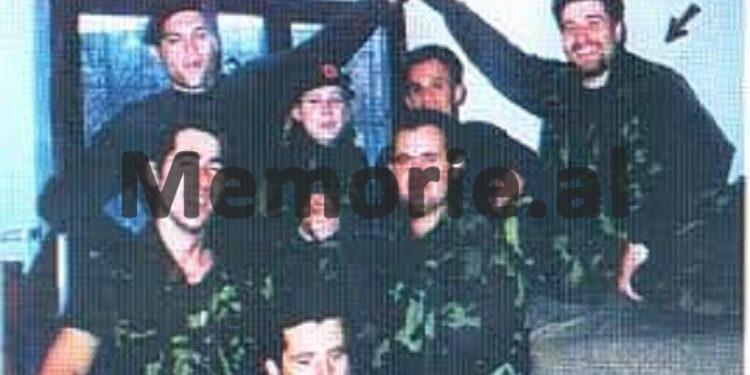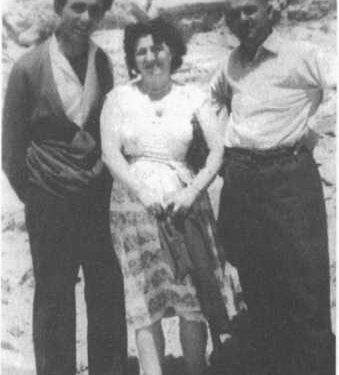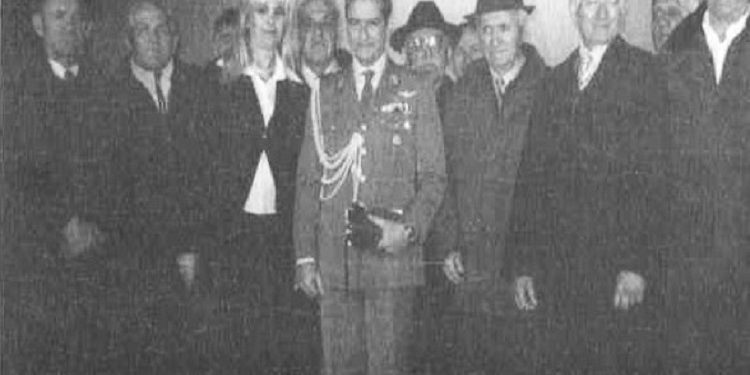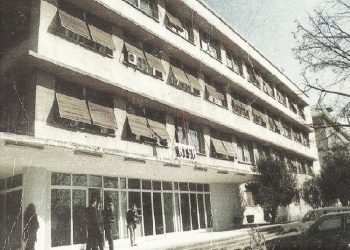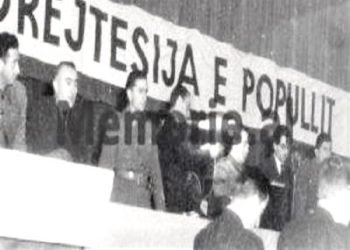From Sofika Prifti Cara
Part Twelve
To Forgive…!
– The Old Kavajë Clan – CARA
Memorie.al /publishes several parts from the book ‘To Forgive’ , authored by Mrs. Sofika Prifti (Cara), published by the Institute for the Study of Crimes and Consequences of Communism in Tirana, in which the author has described in detail and with professional competence, the history of one of the most renowned clans, not only in the city of Kavajë but also beyond – the Cara clan, from which emerged not only distinguished patriots who contributed to the national cause and the freedom of Albania, but also famous intellectuals, graduated in the West, who later returned to the homeland, contributing to various fields of science and life. However, even though the descendants of the Cara clan dedicated their lives to the national cause, after the communists came to power at the end of 1944, they would be persecuted, imprisoned, and interned, and the fierce class struggle would follow them until 1990, when the collapse of the communist regime began.
Continued from the previous issue
That song unfolded across the entire city like a great flag for action. In the opposite stands, tempers flared, and clashes began between the people and the ‘sampistët’ (police/security forces) along with the police, under the surveillance of hidden cameras that filmed everything, which would later be used as evidence. During the clashes, they also made arrests.
Ilir Rugia and Safet Beçeri were arrested and were dragged across the field. In the eightieth minute, the protest organizers sent a small boy onto the field to interrupt the game and gauge the reaction of the law enforcement forces.
The atmosphere intensified further. The clashes continued, along with arrests made at night, house by house. Here are some of the participants: Adi, Deti, and Xhevat Rrica, Tahir, Ramiz, and Ilir Okshtuni, Skënder Llixha, Sheref, Durim, Lutfi, Mustë, and Selë Cara; Rexhep and Ilir Rugeja, Edmond and Kujtim Koçia, Nazmi Roli, Xhevat and Kujtim Koli,(?) Riza Dedei, Hysni Dervishi, Qazim and Ervin Karriqi, Arben and Zabit Karkini, Piro Tako, Sil Durja, Fatmir Veliu, Azem Mullaliu, Mir Ejupi, Gëzim Çelhyka, Çezar and Madrid Petja, Ilir Idrizi, Safet Beçeri, Art and Zyhdi Pagrija, Halim Azizllari, Art, Ylli, and Nik Gjoni, Ibrhim Çanaku, Nexhat Hoxha, Bujar Leçini, Aleksandër and Romeo Dimroçi, Xhevat Hylyviu, Bardhi Arkaxhiu, Indrit and Gentian Cara, Nikolla and Josif Budo, Jak Shtini, etc., etc., whose names I do not know, so I ask their forgiveness.
That day I was in the “Zguraj” neighborhood, at Bardhi’s uncle’s house, Rexhepi, and as I was returning and approaching the post office building, I met Kadri Cara, a cousin of Bardhi, who often came to us. Bardhi’s father had helped him a lot when he was here, and he did not forget it. We exchanged greetings, and I asked him about his son, Ismet, who had been arrested a month before the demonstration.
He was walking with me, and when he reached the public garden, he called out to a young man and asked him: “What’s up?” The boys gathered in a group were discussing something, and Kadriu, or ‘Tata’ (Dad), as everyone in the city called him, later told me what had happened on the football field.
The young man quickly whispered to Kadri: “Tomorrow at seven minus ten (6:50), when people come out of the cinema…!” It was getting late, and Bardhi’s cousin insisted on accompanying me to my house, which was near the electric power station road. As we walked, I asked him: “What’s happening tomorrow?”
“Ah,” he replied, “tomorrow at the hour you heard, we will gather at the morning café and charge the police station building to free the boys they arrested in the stadium and during the night in the neighborhoods. Tell Bardhi to come too,” he added.
“Bardhi is in Fier,” I said, “can I come instead?” “You certainly can!” Kadri retorted. “Come, other women will be joining us too!” Our family had come from a fierce class war under the communist regime: 23 years of prison, 17 years of internment, 1 fugitive, and 2 on the list for execution, without trial! So, I had nothing to lose.
Although it was the first time I would participate in a demonstration, surprisingly, I was not afraid, but I felt great hatred, plus emotion. For 25 years, I had not spoken freely to anyone! Solitude is like the venom of a viper, which gnaws at you and slowly destroys you.
My great dream at that time was the overthrow of that cursed communist system, which aimed to destroy, to bury our family seven fathoms under the earth. Out of impatience, I went ahead to the cinema and was standing near the Elderly Asylum. I was 47-48 years old (??) at the time, with a frail physique, and we had only been in Kavajë for 4-5 months.
I was unknown to the people of Kavajë; only Bardhi’s clan knew me here. Nevertheless, my eyes were blinded by hatred! It was March 26, 1990! Suddenly, the cinema doors opened before the film ended. The gathered people could no longer be contained and began to move. Along the sidewalk, there were a few passers-by who joined the crowd.
“Forward, boys!” a voice was heard. Following that voice, a large group of people of various ages rushed forward: boys and girls, women and men, old people and children. In the demonstration of March 26, along with me, a woman from Durrës who was married in Kavajë and another whose name I don’t recall also participated.
As we set off for the police station, following that rallying cry: “Forward…”! A stern-faced policeman asked us: “What are you doing, boys, where are you going?” “Spy!” a voice from the crowd answered him. “Who spoke?” the policeman turned back. But this time, he received no answer. The crowd ignored him and took the road towards “Rinia” Park.
On the way to the police station, other people joined us. There were also those who stood indifferent on the sidewalks, watching us with disbelief and suspicion. Near the park, we saw Qazim Karriqi approaching us; his feet seemed not to touch the ground. He went up and down the sidewalk and wished all of Kavajë were there. But he didn’t want anything bad to happen, so he told us:
“Boys, it’s nothing! You can even shout: ‘Long live Ramiz Alia!’ But quickly, as if blood rushed to his head, he shouted with all his might:
“Charge, boys! Forward!” The large crowd continued to march until they reached the front of the police station building. There, a noisy, thundering voice immediately resonated: “Free our brothers!” “Enver-Hitler!” “Freedom-democracy!” “Nexhmia, the whore and…..!” cursing badly, with vulgar words. Then, with stones and whatever we could grab, we started smashing the windows of the two floors. It was surprising, even for us women! We couldn’t stand still! A few minutes later, we broke down the gate and entered two or three meters inside the police station yard.
Tata (Kadri Cara) went and climbed onto the balcony (or veranda?) and raised his hand high, like Hitler. From inside the police station, a commanding voice was heard telling someone: “Get out quickly and push back the crowd!” The young man Çezar Petja also came out onto the balcony, but then we didn’t see him anymore. As it was quickly learned, he had been arrested. On March 25, Rexhep Rugien and Selë Carën, one of Kadri’s sons, had been arrested.
And the arrests continued! At that moment, we noticed Kimete and Gani Rugeja arriving; the police had arrested their sons, one on March 25 and the other on March 26. Iliri at the stadium and Rexhepi, the next day, in an attempt to demand the boys’ release. A helmeted policeman was rushing in and out inside, confused. When he saw the crowd entering the police territory, he shouted in alarm:
“Should we shoot at the crowd, chief?!”
“No, no, we don’t have orders. Only for self-defense.” – The voice of the police chief, Sazan Tare, was heard.
“But they are coming inside, chief!” – The frightened voice was heard again. Meanwhile, Qazim Kariqi was among us, cursing, fuming, and clapping his hands. Then suddenly, he addressed Nik Gjoni loudly:
“Wolf (Uku), charge, wolf!” And the crowd pushed even further forward.
“But you, Qazim, why aren’t you staying with us?!” a voice was heard. “Come and stay with us.”
“I will come, I will definitely come,” Qazimi said, “but only after I bring along those who are just watching from the sidewalks.” And indeed, Qazimi quickly returned and shouted as loud as he could. After we broke the windows of the two floors at the police station, we left there and went to the Communist Party Committee building, where we broke the windows there too, and from there, we headed towards the city square. The boys linked arms with each other, and thus united, they broke into the patriotic song:
“For enough of bondage, oh miserable Albania!
Oh boys, seize your rifles, either death or liberty!”
We went and demonstrated in the square for a few minutes, then dispersed. But upon the crowd dispersing, the square lit up from the lights that the electricity boys had turned off. Some government officials, like Muho Asllani and Moikom Zeqo with their colleagues, hoped in vain to identify the people, but they could not.
The streets and squares fell silent, to wait the next day, when the democratic residents of Kavajë would continue to spread the flame of revolt like a relay.
Today, after almost thirty-three years have passed since those stormy days, I feel peaceful, but I only regret one thing: that none of the women who were protagonists in those days were ever mentioned or appreciated later, like the men!
Below, I will try to recall some names of the young people of Kavajë who participated in the demonstration of March 26, but the others whose names I haven’t written should forgive me, as I didn’t recognize them: Qazim Kariqi, the Kallasi brothers, Eqerem, Arian, and Çim Kazazi, Kadri Cara, Edvin Sageri, Nik, Ylli, and Arian Gjoni, Agim and Arben Bala, Ervin Gabo, Kol and Josif Budo, and dozens of others.
Among them were also the few women, including me, whom I mentioned above. In the other demonstrations, which were numerous every day, especially the one on June 10, the participation was fantastic, with many women and men.
Bardhi and I participated in all the demonstrations in Kavajë and Tirana. It is known that on television screens, Ramiz Alia spoke harshly about what happened in Kavajë. “Let’s crush the five hooligans in Kavajë!” he shouted with cynicism and hysteria.
This communist ruler made a small “mistake”: in those anti-communist demonstrations, not just 5 hooligans participated, but 5 united neighborhoods, with boys and girls who had felt great hatred against the communist system for a long time.
Ramiz Alia barked like a dog on television: “Let’s crush Kavajë,” and sent tanks, sampistët (police/security forces), masked Special Forces, armed, who with their savagery blackened Kavajë.
A curfew was declared from 6 PM until 7 AM. In the Party Committee hall, the then-secretary, Agron Tafa, urgently ordered and gathered the overwhelming majority of communists. He instructed them to do a great deal of convincing work with the people to calm the situation in the city.
But nothing more could be done; many communists in Kavajë threw their red party cards in front of their superiors’ eyes and left without looking back. Seeing that the people were becoming increasingly determined, readiness no. 1 was ordered in the army, and an ultimatum was given: to shoot without command for a small, suspicious thing!
The commander and the commissar in the military unit, two good men from old Vlora, who had started and built their careers in Kavajë, refused to use weapons against the people and left their caps on the table.
Kavajë had erupted with force, with its stones, it shone everywhere, and the people of Kavajë gave a great lesson! This is how the large, armed Special Forces began their revenge action, rushing at us like beasts, to drink Kavajë’s blood.
They started in Golem, arresting young people who wore jeans and had long hair. In the afternoon hours, they entered the city and darkened it with their uniforms and their “deeds.” They started in the shepherds’ neighborhood (lagjja e çobanëve) to do the same thing as in Golem…! Memorie.al




